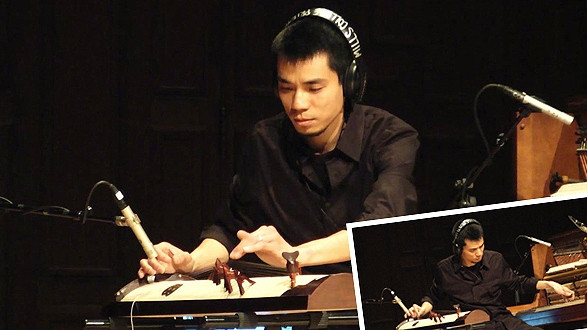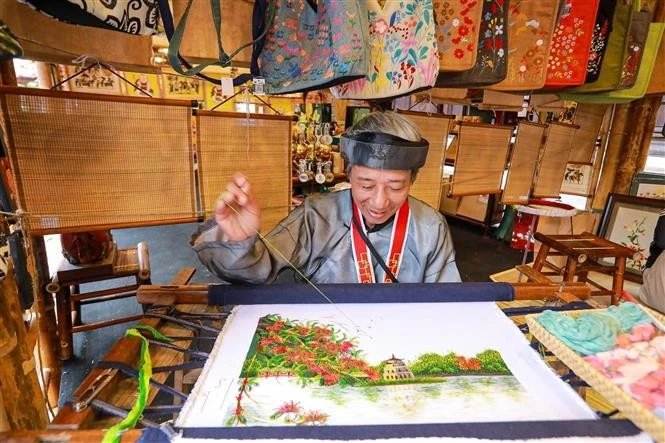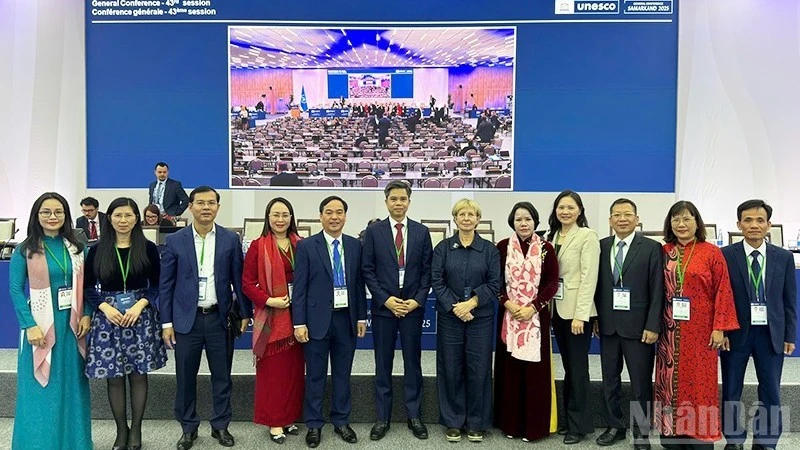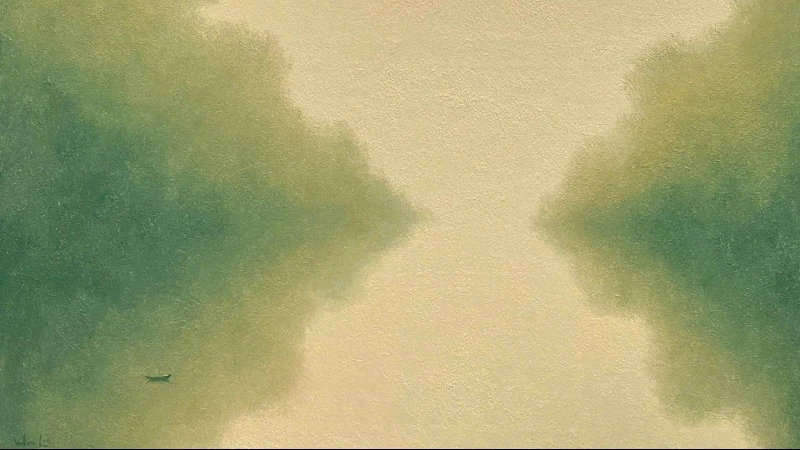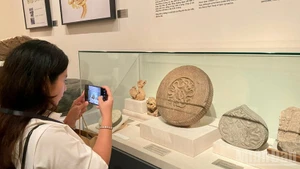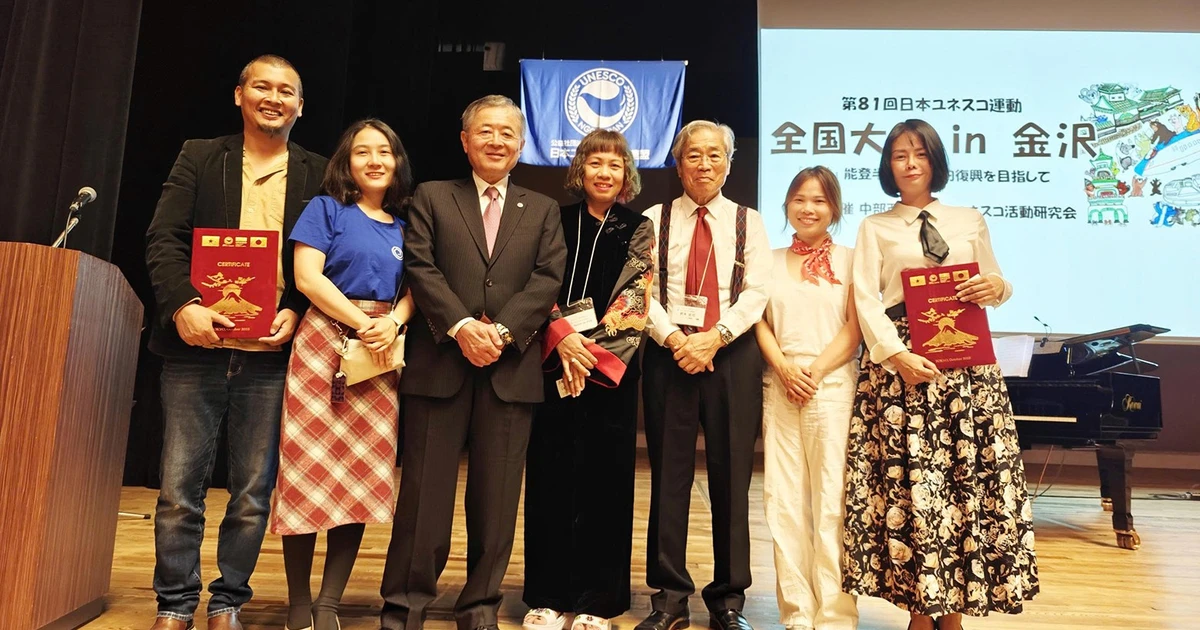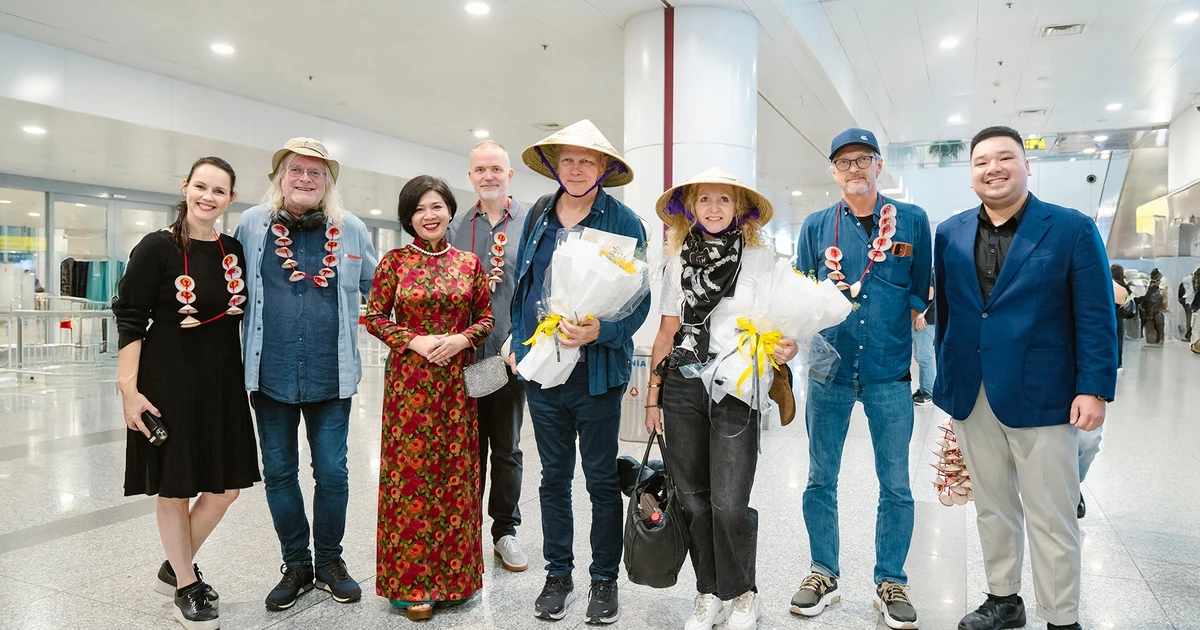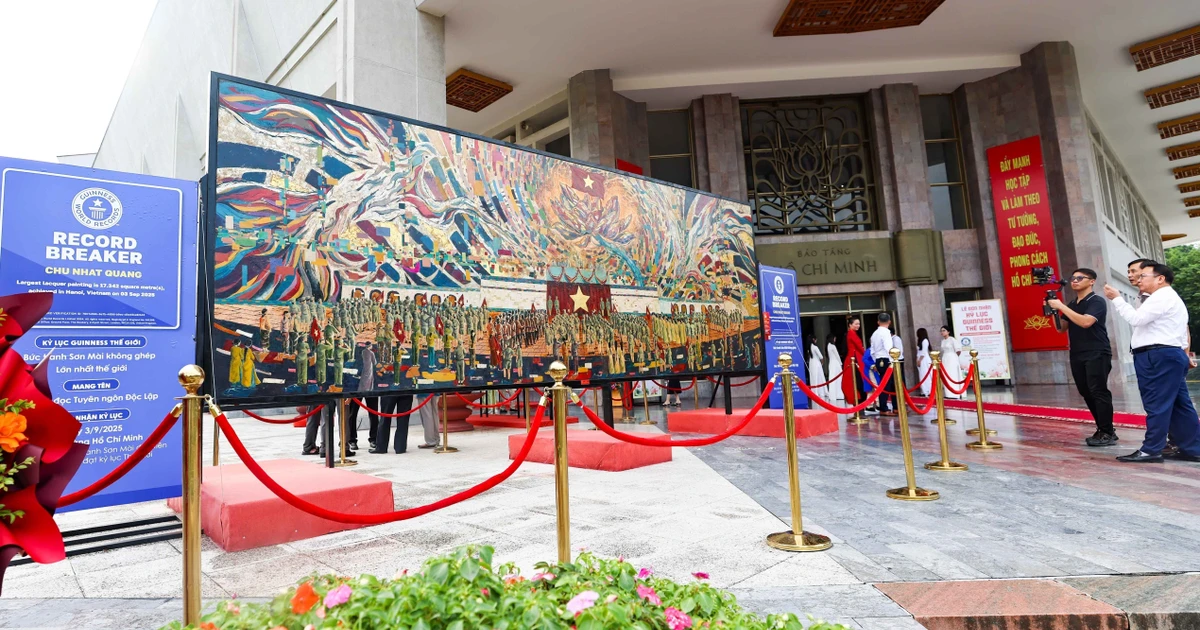Although he has lived and worked in the US since 1999, Xinh Xo’s work has always attracted the attention of electronic music lovers in Vietnam, especially his participation in Ha Tran’s 2006 album, entitled Doi thoai 06 (Conversation 06). His song ‘The Wall Clock’ won the Song of the Year prize at the 2009 edition of the Bai hat Viet (Vietnamese Songs) contest, and Afterlife, his 2010 effort, is considered one of the best electronic music albums ever released in Vietnam.
Opening new perceptions
- Vietnamese listeners are still rather vague about the notion of ‘contemporary music’. What do you think about that?
- Actually, contemporary music is an attempt to change the perception of listeners about what music is. Their perception of music remains very simple. Western music has only seven basic notes; in addition to the sharps and the flats, there are twelve notes all together. If we depend exclusively on such basic notes, the music will fall into a rut. That is why we rarely hear unique and beautiful melodies nowadays.
I love music. Hearing a strange sound can give me a lot of inspiration. I want my music have an impact on people, making them hear not only various high and low tones but also the diversification of a single note; it is in this way that the composer’s message can be conveyed to the listener.
The beauty of contemporary music, as with classical music of the 20th century, is not that it is easy to understand, but that it can free the listener’s imagination. I think it is the composer’s subtlety that allows the listeners to feel, decide and imagine for themselves.
- What is the difference between you and other contemporary artists around the world?
- Contemporary electronic musicians usually use sound samples as material for their shows. Of course, each artist has his or her own choice, materials or technique. When I began to explore this genre, I had to think and learn how to get out of that rut in order to further expand my creativity.
I’m following my own path. I have spent a lot of time studying how to combine the original sounds of musical instruments on stage with the digital audio software I have written, instead of using software available on the market, to create new electronic sounds. For instance, when I play a musical instrument like the 16-chord zither, the PC will process it directly to create relevant sounds or electronic effects right there. People often say I play ‘solo’, but more accurately, it is a duet with the computer.
- Why don’t you play duets with another person?
- When I was a student, professors used to ask me why they hardly ever saw me playing duets with other students in the faculty. I said I preferred playing duets with the PC. The reason why I still want to pursue that direction is because I want to turn the PC into a performing artist with musical feelings, rather than just a tool to serve the performer. It will listen and respond to me with different sounds that are produced on the software I wrote myself. Moreover, the computer is very punctual and I am proactive in terms of time. (laugh)
- You are a lover of sounds. What about the silence?
- For me, silence is a kind of sound, but people do not think of it as a sound because they have no feelings about it. However, silence is what makes us hear sounds most acutely. When absolute silence is present, you can hear a lot of sounds that you don’t usually listen or pay attention to.
Silence is very important in music. Just like in life, music needs to have some breaks to make a transition. Without the silence, everything would become an endless flow.
Going a different way
| Nguyen Xinh Xo is currently a lecturer at Evergreen Valley College and an independent musician. In 2012, Xinh Xo received a master of fine arts in electronic music and recording media at Mills College. Xinh Xo's creations have been performed at many art festivals in the US, Canada, Argentina, New Zealand, Australia, Ireland, Italy, France, and the Netherlands. |
- Now that you’ve quit traditional songwriting, though once you composed songs like ‘The Wall Clock’ and ‘Deep Water’ (sung by Ha Tran), and released the album Afterlife, do you find that you prefer ambient music?
- Yes. If you write a melody or a lyric, the message is clear. It is no different from saying something to someone’s face. Many musicians like that and want their audiences to understand what they mean. I want to follow a different path, a more expansive one, to give the audience more choices.
The new trend is to respect the listeners, not to dictate what they must listen to. One way to accomplish this is to use unusual and unique sounds and rhythmic structures, providing the audience a space in which to let their imaginations run free.
- Are you often misunderstood?
- Being misunderstood is not important, because each person has different feelings and they have the right to live in their own imaginary space, even when they hear the same word or the same message.
- I can feel a meditative air in a number of your works. Do you pay close attention to meditation when composing?
- Yes. And that’s the way I want it. My work creates solace and calm. It does not create troubles, because life has too many troubles already. It is a calm and tolerant influence that forms the meditative nature of my music.
- Thank you very much for the interview!
